Breaking the Silence är en organisation ( http://www.breakingthesilence.org.il/about/organization) bestående av israeliska veteran soldater som servat den israeliska armén sedan Intifadans början. De har samlat in mer än 350 israeliska soldaters vittnesmål om hur det var att patrullera vid gränsen mot Palestina. Tanken är inte att döma eller fördöma enskilda soldater utan målet med organisationen är att uppmuntra det israeliska samhället att se med kritiska ögon på den egna armén och de handlingar som dagligen begås för ”Israels säkerhet”.
Under 10 år har gruppen samlat in vittnesmål från soldater som man nu läser högt för allmänheten i Tel Aviv i 10 timmar. De värsta vittnesmålen valdes ut för att markera en milstolpe i organisationens arbete.
Genom att läsa upp vittnesmål under 10 timmar ville vi visa att de vittnesmål vi har samlat in är inga undantag utan snarare helt vardagliga händelser säger Yehuda Shaul en av grundarna till gruppen och som själv varit soldat.
Nedan några av vittnesmålen:
ISRAELI SOLDIERS’ OWN WORDS
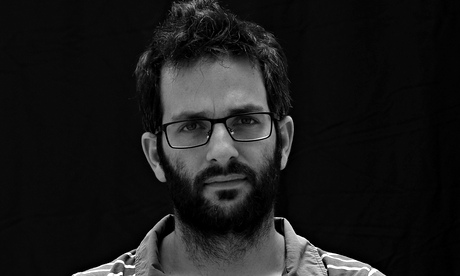 Nadav Weiman. Photograph: Quique Kierszenbaum
Nadav Weiman. Photograph: Quique Kierszenbaum
SERGEANT NADAV WEIMAN
2005-08, Nachal Reconnaissance Unit, Jenin
We’d spread out above Jenin on ”the stage”, which is a tiny mountain top. That evening an arrest mission was in progress, there were riots inside the refugee camp, and we sat above and provided sniper cover for the operation. Things got rolling and there were arrests, some rioting began in the city.
There was random peripheral fire so there were generally no people on rooftops. Some time in the middle of the night, we detected someone on a roof. We focused our sights on him, not knowing for sure whether or not he was a scout. But we targeted him and got an OK to fire because he was on a rooftop very close to one of our forces.
We were several snipers, and we took him down … Later when we got back to Jalame, it started: ”Was he armed or not?” But we’d got our OK from the battalion commander. He was also the one to come and speak with us when we got back to the base in Jalame. We were with the guys with whom we sat to debrief after the action, and it was wall-to-wall, ”You don’t realise how lucky you are to have actually fired in an operation. That hardly ever happens, you are so lucky.”
And according to the way we implemented the rules of engagement, we declared him a target by documenting him. We thought the Palestinian had been speaking on the phone, he seemed to be raising his hand to his head, looking sideways, going back and forth, just like a person scouting and sending information back. You could see the angles of his body, his whole conduct facing the soldiers who were north of him, in the alley below, a few metres away.
SERGEANT, ANONYMOUS
Undisclosed Reservist unit, Gaza Strip 2009, Operation Cast Lead
The actual objective remained rather vague. We were told our objective was to fragment the Strip, in fact we were told that while we were there, not knowing how long, we would have to raze the area as much as possible. Razing is a euphemism for systematic destruction. Two reasons were given for house demolitions. One reason was operational. That’s when a house is suspected to contain explosive, tunnels, when all kinds of wires are seen, or digging. Or we have intelligence information making it suspect. Or it’s a source of fire, whether light arms or mortars, missiles, Grads [rockets], all that stuff. Those are houses we demolish.
Then we’re told some will be destroyed for ”the day after”. The rationale is to leave a sterile area behind us and the best way to do that is by razing it. In practical terms, it means you take a house that’s not suspect, its only transgression is that it stands on a hill in Gaza. I can even say that in a talk with my battalion commander, he mentioned this and said half smiling, half sad, that this is something to add to his list of war crimes. So he himself understood there was a problem.
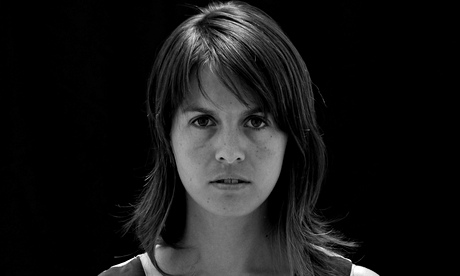 Tal Wasser. Photograph: Quique Kierszenbaum
Tal Wasser. Photograph: Quique Kierszenbaum
SERGEANT TAL WASSER
2006-09, Oketz (canine special forces), Nablus
Standing at the roadblock for eight hours a day puts everyone under this endless pressure. Everyone’s constantly yelling, constantly nervous, impatient … venting on the first Palestinian to cross your path. If a Palestinian annoys one of the soldiers, one of the things they’d do is throw him in the Jora, which is a small cell, like a clothing store dressing room. They close the metal door on him and that would be his punishment for annoying, for being bad.
Within all the pressure and the stress of the roadblock, the Palestinian would often be forgotten there. No one would remember that he put a Palestinian there, further emphasising the irrelevance and insignificance of the reason he was put there in the first place. Sometimes it was only after hours that they’d suddenly remember to let him out and continue the inspection at the roadblock.
SERGEANT, ANONYMOUS
Nablus Regional Brigade, Nablus, 2014
”Provocation and reaction” is the act of entering a village, making a lot of noise, waiting for the stones to be thrown at you and then you arrest them, saying: ”There, they’re throwing stones.”
Lots of vehicles move inside the whole village, barriers. A barrier seems to be the army’s legitimate means to stop terrorists. We’re talking about Area B [under civilian Palestinian control and Israeli security control], but the army goes in there every day, practically, provoking stone throwings. Just as any Palestinian is suspect, this is the same idea. It could be a kid’s first time ever throwing a stone, but as far as the army is concerned, we’ve caught the stone thrower.
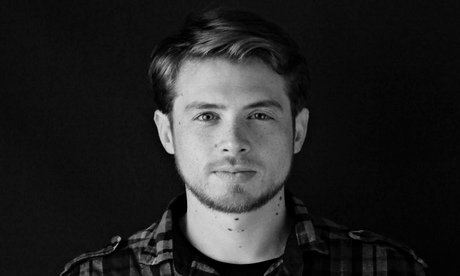 Avner Gvaryahu. Photograph: Quique Kierszenbaum
Avner Gvaryahu. Photograph: Quique Kierszenbaum
SERGEANT AVNER GVARYAHU
2004-07 Orev (special anti-tank unit), Nablus
It was when I was a sergeant, after we had finished training. 200 [the number of the commander] said to us unequivocally: ”That’s how you’re ranked. With Xs. Every night I want you to be looking for ‘contact’ [an exchange of fire] and that’s how you’ll be ranked.”
At some point I realised that someone who wants to succeed has to bring him dead people. There’s no point in bringing him arrests. [The message was:] ”Arrests are routine, the battalions are making arrests. You’re the spearhead, the army has invested years in you, now I want you to bring me dead terrorists.”
And that’s what pushed us, I believe. What we’d do was go out night after night, drawing fire, go into alleys that we knew were dangerous. There were arrests, there were all kinds of arrests. But the high point of the night was drawing fire, creating a situation where they fired at us.
It’s a situation, totally insane, you’re in it, it’s hard to explain. You’re looking through the binoculars and searching for someone to kill. That’s what you want to do. And you want to kill him. But do you want to kill him? But that’s your job.
And you’re still looking through the binoculars and you’re starting to get confused. Do I want to? Don’t I want to? Maybe I actually want them to miss.
SERGEANT, ANONYMOUS
Kfir Brigade, Tul Karem, 2008
There was one checkpoint that was divided into three lanes: there’s a settlement, a checkpoint, and then Israeli territory. In the middle, there’s a Palestinian village, so they just split the checkpoint into three lanes. Three lanes, and the brigade commander ordered that Jews should only wait at the checkpoint for 10 minutes. Because of that we had to have a special lane for them, and everyone else, the Palestinians and Israeli Arabs, had to wait in the other two lanes. I remember that settlers would come, go around the Arabs, and just did it naturally. I went over to a settler and said: ”Why are you going around? There’s a line here, sir.” He said: ”You really think I’m going to wait behind an Arab?” He began to raise his voice at me. ”You’re going to hear from your brigade commander.”
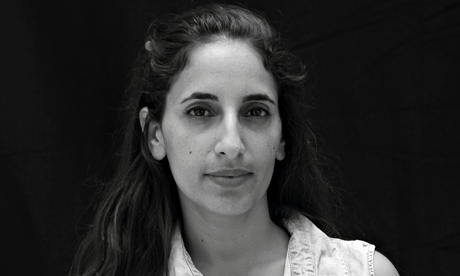 Gil Hillel. Photograph: Quique Kierszenbaum
Gil Hillel. Photograph: Quique Kierszenbaum
GIL HILLEL
2001-03, Sachlav (military police), Hebron
On my first or second day in Hebron, my commanders asked me to go on a ”doll”, a foot patrol that we conduct in the casbah and Jewish settlement. I agreed, it seemed cool. It was my first time in the field, come on, let’s do it. We went on patrol, into the casbah, and I think that was the first time I sensed the existential fear of living under constant threat.
We started the doll and I started feeling bad. The first time in the field is not simple. One of my commanders, the veteran among them, took an old Palestinian man, just took him aside to some alley and started beating him up. And I … it wasfine by all the others … I sort of looked at them and said: ”What is he doing? Why is he doing that? What happened? Did he do anything? Is he a threat? A terrorist? Did we find something?” So they said: ”No, it’s OK.” I then approached my commander, the [one] who trained me, and asked: ”What are you doing?” He said: ”Gil, stop it.”
And that really scared me. I was scared of their reactions, of the situation we were in. I felt bad with what went on there, but I kept quiet. I mean, what can I do? My commander told me to shut up. We left there and went back to the company and I went to my commander and said: ”What are you doing? Why did you do that?” So he said: ”That’s the way it is. It’s either him or me and it’s me and …”
They took him aside and just beat him up. They beat him up, they punched him. And slapped him, all for no reason. I mean, he just happened to walk by there, by mistake.
SERGEANT, ANONYMOUS
Nachal Brigade, 50th Battalion, Hebron, 2010
The Jewish settlers of Hebron constantly curse the Arabs. An Arab who passes by too closely gets cursed: ”May you burn, die.”
On Shuhada Street there’s a very short section where Arabs may walk as well, which leads to Tel Rumeida neighbourhood. Once I was sent there and we found three Jewish kids hitting an old Arab woman. Another man from the Jewish settlement happened along and also joined them in yelling at the woman: ”May you die!” When we got there they were mainly yelling, but there had clearly been blows dealt as well. I think they even threw stones at her.
I believe the [policeman] was called but ended up not doing anything. The general atmosphere was that there was no point in summoning the police – the policeman is a local settler from Kiryat Arba who comes to pray with the Hebron settlers at the Tomb of the Patriarchs on Fridays.
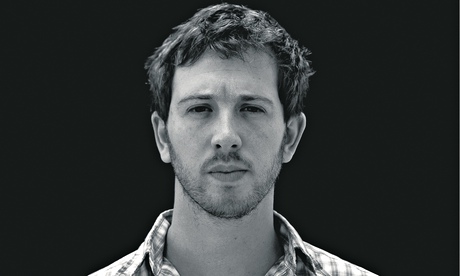 Nadav Bigelman. Photograph: Quique Kierszenbaum
Nadav Bigelman. Photograph: Quique Kierszenbaum
SERGEANT NADAV BIGELMAN
2007-10, Nachal Brigade, 50th Battalion, Hebron
During patrols inside the casbah we’d do many ”mappings”. Mappings mean going into a house we have no intelligence on. We go in to see what’s inside, who lives there. We didn’t search for weapons or things like that. The mappings were designed to make the Palestinians feel that we are there all the time.
We go in, walk around, look around. The commander takes a piece of paper and … makes a drawing of the house, what it looks like inside, and I had a camera. I was told to bring it. They said: ”You take all the people, stand them against the wall and take their picture.” Then [the pictures are] transferred to, I don’t know, the General Security Service, the battalion or brigade intelligence unit, so they have information on what the people look like. What the residents look like. I’m a young soldier, I do as they say. I take their pictures, a horrible experience in itself, because taking people’s pictures at 3am, I … it humiliated them, I just can’t describe it.
And the interesting thing? I had the pictures for around a month. No one came to get them. No commander asked about them, no intelligence officer took them. I realised it was all for nothing. It was just to be there. It was like a game.
SERGEANT, ANONYMOUS
Paratrooper, 2002, Nablus
We took over a central house, set up positions, and one of the sharpshooters identified a man on a roof, two roofs away, I think he was between 50 and 70 metres away, not armed. I looked at the man through the night vision – he wasn’t armed. It was two in the morning. A man without arms, walking on the roof, just walking around. We reported it to the company commander. The company commander said: ”Take him down.” [The sharpshooter] fired, took him down. The company commander basically ordered, decided via radio, the death sentence for that man. A man who wasn’t armed.
I saw with my own eyes that the guy wasn’t armed. The report also said: ”A man without arms on the roof.” The company commander declared him a lookout, meaning he understood that the guy was no threat to us, and he gave the order to kill him and we shot him. I myself didn’t shoot, my friend shot and killed him. And basically you think, you see in the United States there’s the death penalty, for every death sentence there are like a thousand appeals and convictions, and they take it very seriously, and there are judges and learned people, and there are protests and whatever. And here a 26-year-old guy, my company commander, sentenced an unarmed man to death.